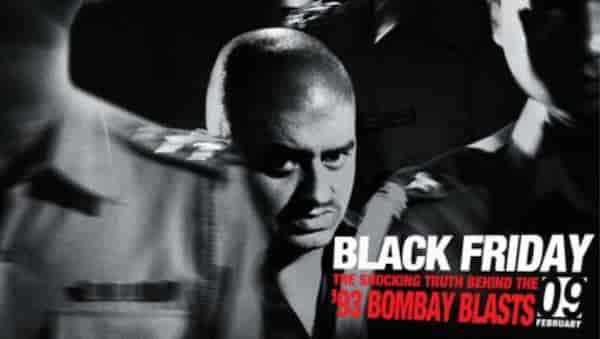Black Friday turns 15: Anurag Kashyap’s film gives an even-handed look into 1993 Bombay blasts
Black Friday, based on Hussain Zaidi’s book, aligns itself with the journalistic essence of the source material. Facts about how the 1993 Bombay blasts were planned and the consequent investigation that led to hundreds of arrests run the story.

A poster for Black Friday
Last Updated: 10.59 AM, Feb 11, 2022
Anurag Kashyap has come a long way since his first film Paanch, which was so mired in controversy, it never made it to Indian theatres. Black Friday almost faced the same fate but saw the light of day a whole three years after its making. We’re glad that it did.
It’s not an exaggeration to call it a rare brave film. Hindi cinema has mostly tried to steer clear of exploring topics — especially of religious or historical importance — that have the potential to incite anger from any section of society. Realism is hardly appreciated unless it's offset (read: diluted) by a good amount of theatrics; neither has it been considered lucrative enough for producers and studios to pour their money into. Death threats to actors, vandalism on set, stalled releases, court cases and widespread protests have often closely trailed films that haven’t toed the line. Of late, Hindi cinema has turned into a glamorous mouthpiece for the government’s agenda.
Black Friday, based on Hussain Zaidi’s book, aligns itself with the journalistic essence of the source material. Facts about how the 1993 Bombay blasts were planned and the consequent investigation that led to hundreds of arrests run the story. Real-life news clips are interspersed into the narrative, spotlighting the weight of this incident and how it tore through the city of Mumbai. Real-life figures – key conspirators Tiger Memon and Dawood Ibrahim, Deputy Commissioner Rakesh Maria (who led the blasts case) — are shown as is. The dramatisation is not overdone, there is no one saviour leading the show nor a megalomaniac Mogambo figure scheming with his posse. It is a testament to Kashyap’s artistry that later gave us films like Gulaal, Gangs of Wasseypur and Dev D.
The plot goes back further in time to the events preceding the blasts: the Babri Masjid demolition and the communal violence through December 1992 to January 1993. The film makes mention of how the police, the very machinery that upholds law and order, was complicit in the week-long violence where a large chunk of Mumbai’s Muslim population - men, women and children - were inflicted with sexual violence, savagely slain, and had their houses burned to the ground.
Additionally, Black Friday highlights the unchecked brutal interrogation tactics of the cops working the blasts case. One instance is the opening scene where a cop is trying to squeeze out information from a suspect who’s stripped bare of all clothes. He’s slapped around, splashed with water as he repeats he has no info but finally buckles. The strategy works but at what cost? These visuals, both real and fictional, are hard to digest.
Keeping in line with the docudrama spirit, Black Friday does not try to take any sides. It doesn’t vilify one community over the other, doesn’t paint the cops in a heroic light. It’s a rounded picture of what happened, how it happened and what followed. Black Friday begins on the note that “an eye for an eye makes the whole world blind” and that’s the only opinion it handholds the audience towards — fundamentalism is an absolute death trap.
Black Friday is streaming on Netflix.

 Premium
Premium